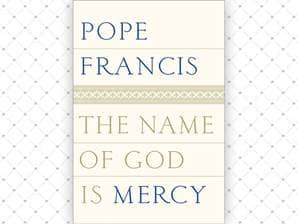
I can read my life in light of chapter 16 of the book of the prophet Ezekiel. I read those pages and I say: everything here seems written just for me.
The prophet speaks of shame, and shame is a grace: when one feels the mercy of God, he feels a great shame for himself and for his sin. There is a beautiful essay by a great scholar of spirituality, Father Gaston Fessard, on the subject of shame in his book The Dialectic of the “Spiritual Exercises” of St. Ignatius.
Shame is one of the graces that Saint Ignatius asks for during his confession of his sins before Christ crucified. That text from Ezekiel teaches us to be ashamed, it shows us how to feel shame: with all our history of wretchedness and sin, God remains faithful and raises us up. I feel this. I don’t have any particular memories of mercy as a young child.
But I do as a young man.
I think of Father Carlos Duarte Ibarra, the confessor I met in my parish church on September 21, 1953, the day the Church celebrated Saint Matthew the apostle and Evangelist. I was seventeen years old. On confessing to him, I felt welcomed by the mercy of God. Ibarra was originally from Corrientes but was in Buenos Aires to receive treatment for leukemia. He died the following year. I still remember how when I got home, after his funeral and burial, I felt as though I had been abandoned. And I cried a lot that night, really a lot, and hid in my room.
Why? Because I had lost a person who helped me feel the mercy of God, a person who helped me understand the expression miserando atque eligendo, an expression I didn’t know at the time but which I would eventually choose as my episcopal motto.
I learned about it later, from the homilies of the English monk the Venerable Bede.
When describing the calling of Matthew, he writes: “Jesus saw the tax collector, and by having mercy chose him as an Apostle, saying to him, ‘Follow me.’ ”
This is the translation commonly given for the words of Saint Bede. I like to translate miserando with a gerund that doesn’t exist: mercifying. So, “mercifying and choosing” describes the vision of Jesus, who gives the gift of mercy and chooses, and takes unto himself.

